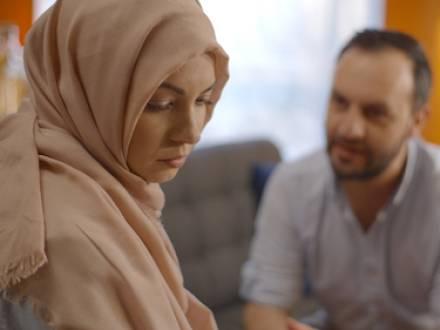The Reality of Divorce Among Muslims in Illinois
 Today divorce is a reality for many American Muslim families, yet despite impacting many families, there is very little data available. A 2020 survey from the Institute for Social Policy and Understanding looked at many issues that affect American Muslims, including divorce. The survey found that compared to others in the U.S., Muslims are as likely to be married but less likely to be divorced. Yet the legal process of divorce occurs among every demographic and is often complex and emotional for all those involved.
Today divorce is a reality for many American Muslim families, yet despite impacting many families, there is very little data available. A 2020 survey from the Institute for Social Policy and Understanding looked at many issues that affect American Muslims, including divorce. The survey found that compared to others in the U.S., Muslims are as likely to be married but less likely to be divorced. Yet the legal process of divorce occurs among every demographic and is often complex and emotional for all those involved.
This may be particularly true for those navigating the unique laws and customs of the Muslim faith in the United States. If you are an American Muslim facing divorce and all the issues that go with it, it can be extremely beneficial to speak to an Oakbrook Terrace divorce lawyer from Farooqi & Husain Law Office. Our experienced attorneys have a unique perspective when assisting the Chicago Muslim community in understanding Sharia law and how the law intersects with their religious practices during divorce.
Survey Results Regarding American Muslim Divorce
Although half of the adult Muslim population is married, when compared to the general public, Muslims are more likely to have never married (35 percent vs. 22 percent). This is not as surprising as you might initially think since Muslim young people make up double the portion of their communities as compared to the general public. According to the survey, more Muslims believe divorce is an acceptable solution than white evangelicals. Even so, divorce among Muslims remains a controversial topic, with younger Muslims tending to be more accepting of divorce than those who are older.
While there may be more acceptance of divorce, the survey found that a majority of Muslims wish there were more support for divorced people in their faith communities. The survey’s final question dealt with how willing Muslims would be to accept a divorced person as a spouse for their adult child. Muslims were less likely than the general public to be accepting of such a situation. Since other groups were close behind, this may speak to the reality that divorce is still stigmatized, at least to some degree.
What Are the Two Types of Divorce Recognized Under Sharia Law?
Islamic law recognizes two types of divorce – "talaq" and "khul." The more traditional form of Sharia divorce is talaq, in which the process of divorce is initiated when the husband says the word talaq to his wife. This may be done in one statement or in a three-step process. In the three-step process, the husband says the word talaq three times, with a certain waiting period between each.
A divorce initiated by the wife is known as khul. In a khul divorce, the wife could agree to give up her right to financial compensation – including spousal support – in exchange for her husband agreeing to the divorce.
Special Considerations for Muslim Divorce
Sharia refers to religious principles that govern the lives of Muslims, although to many, the word simply means "justice." Divorces involving Sharia or Islamic law can make the process of divorce much more complex, especially when the spouses are married outside the U.S. and are seeking a divorce within the country. When Muslims want to get divorced, they will need to take an additional step to dissolve the marriage Islamically, by consulting with their imams.
While imams in America generally recognize U.S. court jurisdiction, the Islamic divorce certificate will not be issued until the spouses have a civil divorce that legally dissolves the marriage under Illinois law. Some states have banned the consideration of foreign law in divorce cases, which means judges cannot consider Islamic law during the divorce. In Illinois, many judges look at the terms of an Islamic marriage contract if it meets the requirements of a premarital agreement and will uphold the terms.
Contact a Oakbrook Terrace, IL Divorce Lawyer Skilled in Sharia Law
At Farooqi & Husain Law Office, we represent many clients who have concerns regarding whether Sharia law will be a respected component of their Illinois divorce. Having an experienced DuPage County, IL divorce lawyer guiding you through the process can be invaluable. Contact an Oakbrook Terrace, IL divorce lawyer at Farooqi & Husain Law Office by calling 630-909-9114 to schedule a consultation.


 630-909-9114
630-909-9114




